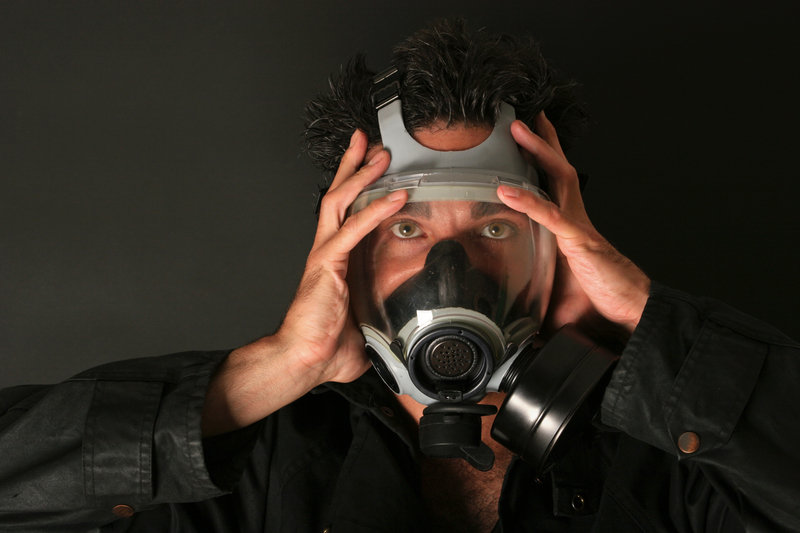Unless you have gobs of money lying around, preparing for the end of the world will really affect your pocketbook.
What, then, since most of us do not have gobs of money lying around, is the correct degree of preparation for most survival situations; here is one perspecgtive.
I could have a two-year supply of food and still get killed in an earthquake.
I could train rigorously to defend myself and still die of hypothermia in a natural disaster that left me trapped in the elements.
So to a certain extent, I think that extreme prepping and putting too much reliance in prepping is not only a waste, but also perhaps not in keeping with living the sort of productive and God-fearing life I should be living.
I think it comes to this: a reasonable, responsible level of preparedness is smart, but putting a lot of worry into it and subsequently stewarding resources irresponsibly or becoming obsessed would be wrong.
That begs the question: What does responsible preparedness look like?
• A water supply for at least three days, preferably more. Resources to filter water or otherwise make water drinkable are good too, even something as simple as a large pot and the ability to make a fire to boil water.
• A food supply for at least three days, preferably more. Keep things like flour, rice, and canned goods stored in bulk, use before they go bad in non-disaster times, and replace them as they’re used. That way you’re not having food sit totally unused, but you’ve got plenty for when you need it.
• Keeping first aid kits in your home and vehicles.
• Making sure your home is as prepared for a disaster as possible. In this area where earthquakes are a threat, making sure a home is bolted to the foundation or otherwise up to earthquake codes is a good idea.
• Have an emergency plan–if you live in an area with tornadoes, learn what to do in case of tornadoes, for example. (Get in a bathtub with a mattress pulled over top, in a storm cellar, or in an inner room with no windows.)
• Have an emergency heat source available and a supply of any fuel that it needs. For instance, a wood burning stove and a wood pile.
For me, I also see practical skills that could be used temporarily or more permanently in a bad situation as very practical. In a “doomsday” situation, whatever it may be, many of those skills would be more useful to survival long-term than hoarding a ridiculous amount of supplies at one location.
That is part of why I want to do things like garden, cook from scratch, and learn to make things myself instead of rely on purchases. After all, if you teach a man to fish, he can eat fish even after the canned tuna has run out.
Consider some skills that could be used in short- or long-term disaster scenarios:
• Wilderness survival
• Fire starting (without matches or lighters)
• Self-defense
• Firearm use
• Food preservation
• Food growing
• From-scratch cooking
• Cooking over a fire and/or woodstove
• Water purification
• Herbal and natural remedies made with local plants (and proper identification of those plants)
• First aid
• Hunting, tracking, and trapping
• Knitting/crocheting/sewing/spinning
• Tanning leather
• Woodworking/building
It is hard to know how much to prepare will be enough – but we do know that not preparing is asking for trouble and possibly, death and most of us would not survive an end of world scenario no matter how prepared we are.
Plus, if you agree with this position of “prepared but realistically prepared” and learn the skills in the list above, you will spend almost a lifetime mastering those skills (and you still get to buy a bunch of cool gear – but gear you will actually use.)
To learn more on this debate, check out Our Little Urban Homestead.

I don’t understand this doomsday prepper stuff? The world is a$#%&!@*hole now and will be even worse after d day. Why the$#%&!@*would anyone want to survive a “doomsday?” I for one would rejoice if the “end” was near.
Doomsday if you got the money for everything. I’d it doesn’t happen you are set
Practical prepping is definitely better than preparing for “doomsday”. You’re more likely to experience an earthquake or tornado a busted waterline in your home than to experience the apocalypse. You’re Geiger counter isn’t going to do$#%&!@*for you when there’s been an electrical storm and the power is out.